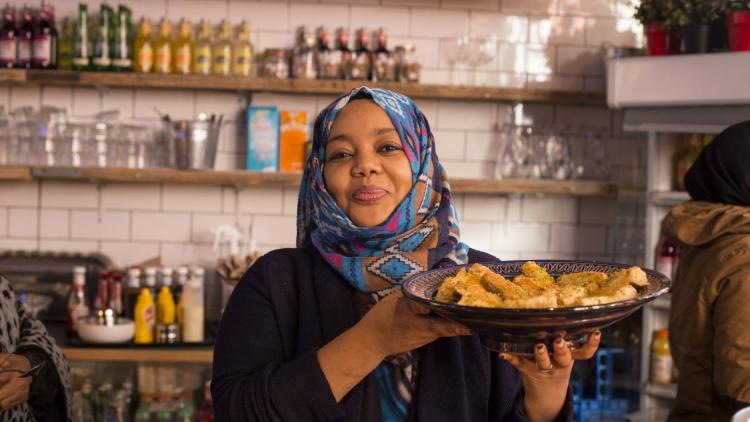
Almost two years after the start of the Coronavirus pandemic, Voscur has published The Power of Community, research that shows how Bristol’s voluntary, community and social enterprise sector has adapted to meet the pandemic’s many challenges. You can download the report here.
Working in partnership with many of Bristol’s VCSE organisations, this joint Voscur/University of Bristol research includes recommendations that would help towards a more equitable future for those who use our services, those working in the sector, and VCSE organisations themselves.
The research focused on five areas – volunteering, homelessness, digital exclusion, food poverty and open space – and included over 150 people and organisations sharing their views of the pandemic. The headline recommendations that emerged from this research include:
Democratising the voluntary sector – volunteering exploded during the pandemic, with new or reinvigorated support groups often filling the gaps left by a breakdown in many services. Having proved their worth, these groups now need to be offered an active role in decision making across the city.
Collaboration – the pairing of smaller, more agile groups with larger, better resourced organisations can be a winning formula. This must go beyond the inclusion of smaller organisations as ‘bid candy’ on the funding applications submitted by larger organisations.
Mental health – ‘burn out’ was a term that all our researchers heard. The sector has worked wonders since March 2020, but this has come at a price with many either leaving their roles or suffering long term. Sector resilience will be greatly enhanced with coordinated and resourced mental health support.
Digital exclusion – local expert John Bradford says that although digital exclusion became front page news during the early stages of the pandemic, the problem is still very much with us. What is needed is city-wide strategic thinking to ensure everyone has access to tech and connectivity.
Homelessness – the Everyone In scheme showed that it is possible to provide a roof for those who need it. Opportunities for homelessness organisations to take on empty buildings and vacant land must be explored with the council and local grant makers.
Open space – Whether exercising, growing food or spending time with nature, public open spaces should be accessible to everyone in Bristol. Better management of open spaces, along with ideas for investment from other revenue streams, would be welcomed by many who volunteer their time to care for them.
Voscur will be working with partners across the city to make these recommendations a reality. If you would like to be part of this, please contact Tom Burnett (tom.burnett@voscur.org).